-
Preventing Computer-Related Eyestrain
While regularly visiting your ophthalmologist near Chicago is an important part of your ongoing eye care, so is taking care of your vision while at work and home. If your vision gets blurry, your eyes burn, or your neck aches after sitting in front of your computer for a while, then you may be dealing with eyestrain. Watch this video to find out more about this common condition.
Referred to by eye doctors as computer vision syndrome, eyestrain that results from looking at a computer monitor is not an uncommon problem. Luckily, there are several steps that eye doctors recommend for preventing this issue. Your monitor should be 20 to 30 inches from your eyes, so adjusting it to be within this range may alleviate your symptoms. Also, ensure that the monitor is at eye level and that your lighting doesn’t create a glare on the screen.
-
Treating Age-Related Presbyopia with Eye Surgery
Presbyopia is a vision change that occurs with age. This condition causes problems with focusing on close work, which can be particularly problematic for individuals who work on computers and those who enjoy reading. If you’ve discovered that your contact lenses or eyeglasses are no longer sufficient for your vision, it’s time to make an appointment with an ophthalmologist near Chicago. An ophthalmologist may recommend eye surgery to correct your presbyopia .
As you’ll learn when you watch this video, vision correction for patients with presbyopia may involve the insertion of intraocular lenses (IOLs). This involves removing the natural lens of the eye and replacing it with a synthetic lens. Another possibility is refractive surgery. Your ophthalmologist can reshape your cornea to improve your vision.
-
Taking Care of Your Eyes as You Age
Did you know that September has been designated as Healthy Aging Month? Its purpose is to remind people that it’s never too late in life to take control of their wellness. One commonly overlooked aspect of aging is its impact on your eyes. Visiting an ophthalmologist in Chicago regularly is important at every stage of life, but it’s particularly crucial as you grow older. Millions of Americans face blindness because of age-related vision changes. Scheduling a comprehensive exam every year with your eye doctor will help you manage your vision health. Not only can your ophthalmologist diagnose problems early on, but he or she can also provide some general eye care tips to help you protect your sight.
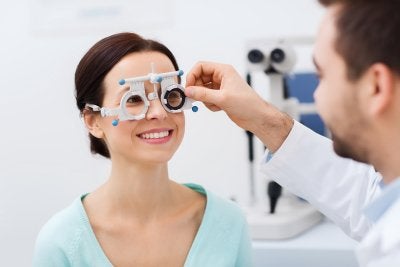
Kick the Habit
Your ophthalmologist might advise you to quit smoking. If you smoke, you should know that the habit directly increases your risk of developing cataracts and age-related macular degeneration. Tobacco use can also indirectly increase your risk of vision problems, such as by making you more susceptible to cardiovascular diseases that affect the health of your eyes. Quitting smoking is hard, but dealing with the health consequences of smoking is far worse. By quitting, you’ll improve the health of everyone around you as well as your own health. If you’re having trouble quitting or you need a little more convincing, your eye doctor may refer you to your primary care physician, who can connect you with appropriate resources in your community.
Pay Attention to Your Diet
When you were younger, you might have consumed sugary sodas and baked goods without a second thought, but the body of an older adult is less forgiving. You may have already realized that eating healthier is better for your energy levels, mood, and cardiac health, but it’s also good for your eyes. Certain foods are rich in the nutrients that your eyes need. These include cold water fish like salmon and tuna, dark green leafy vegetables like kale and spinach, and citrus fruits like kiwi and oranges. Eggs are also good for eye health because they contain lutein and zeaxanthin. These nutrients may offer some protection against age-related macular degeneration.
Manage Your Medical Conditions
If you’re undergoing regular wellness exams at your doctor’s office, then you might already know if you have high blood pressure, abnormal cholesterol levels, or high glucose levels. If so, it’s important to work with your doctor to manage these problems because they can affect your eye health.
-
Understanding Dry Eye Syndrome
Dry eye syndrome is a condition frequently treated by eye doctors. If you are looking for an ophthalmologist to receive dry eye treatment near Chicago, you may have questions about this disorder. Watch this video to understand the nature of dry eye syndrome.
Your eyes have three layers of tears. The reason that most people develop dry eyes is the deterioration of the mucin cells, which make up the bottom tear layer. As you age, these cells can begin to fail, resulting in a reduction of your tear production and a feeling of dryness in your eyes. Eye doctors often recommend artificial tears to provide dry eye treatment for mild cases of this condition.
-
Taking Care of Your Child’s Vision
Just like going to the dentist and the pediatrician, eye examinations and visits to an eye doctor in Chicago should be part of your child’s routine medical care. Keep reading to learn more about taking care of your child’s vision.
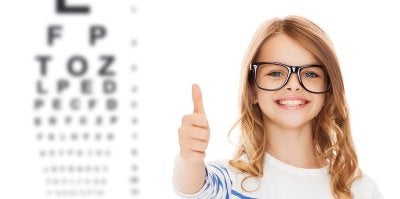
Types of Eye Care Specialists
There are a variety of eye care professionals that your child may need to see. Optometrists offer primary vision care and can perform eye examinations to determine if your child needs glasses or is suffering from an eye disease. Opticians specialize in fitting and adjusting eyeglasses. Ophthalmologists are medical doctors who provide comprehensive eye care, including surgery and practicing medicine. Finally, pediatric ophthalmologists are eye doctors who have undergone additional training to diagnose and treat problems that can affect children’s eyes.
Sources of Childhood Eye Care
Throughout her childhood, your child should periodically have her eyes examined. Newborns typically have their eyes checked by a doctor while in the hospital nursery as part of a general health examination. Your child’s pediatrician or family doctor should perform eye health screenings as she grows up and if irregularities are detected, direct you to see an eye doctor. For children that already wear corrective lenses, visits to an eye doctor should be scheduled once per year so their eyes can be monitored for changes and their eyewear can be updated accordingly.
Signs of Childhood Eye Problems
Besides having a doctor look at your child’s eyes, you can also take care of her vision by knowing how to spot eye problems. If you notice that your child’s eyes are extremely sensitive to light or are chronically watery or red, schedule an eye doctor appointment. Other indicators of an eye problem include poor visual tracking, poor focusing, a whitened pupil, constant eye rubbing, and abnormal eye movement or alignment after six months of age. Once your child is of school age, there are behaviors to watch for that can indicate that she is struggling to see properly. These can include sitting close to the TV, squinting, having difficulty reading, struggling to see distant objects, and having trouble reading the blackboard at school.
-
Sunglasses: More than Just Fashion
July is UV Safety Month, which serves to remind individuals of the importance of protecting themselves from the sun’s harmful rays. Ultraviolet (UV) radiation is a type of energy transmitted by the sun. Tanning lamps and tanning beds are also major sources of UV rays. There are three main types of UV rays, two of which can have serious health consequences for people. It’s common knowledge that excessive exposure to sunlight increases the risk of skin cancer, but it’s just as important to protect the eyes from these harmful rays. The next time you visit an optical center in Chicago for an eye exam or LASIK consultation, consider talking to your eye doctor about how you can protect your eyes from UV rays.
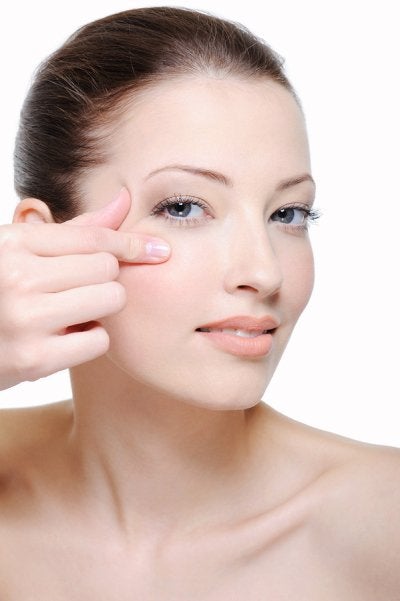
Identifying the Dangers of UV Rays
During UV Safety Month, take a few minutes to learn about the ways unprotected sunlight exposure can harm the eyes. UV rays can damage the eyes in several different ways. They increase the risk of cataract development, which are cloudy areas on the lenses. They can cause photokeratitis, which results in temporary vision loss. UV rays can even increase the risk of macular degeneration, pinguecula (yellow bumps on the eye), and pterygia (disfiguring bumps that cause blurry vision).
Protecting Yourself from UV Rays
It’s commonly thought that protection from UV rays isn’t as important on cloudy days or during the winter. In fact, a significant percentage of UV rays can still penetrate your eyes and skin on cloudy days. Likewise, cold temperatures do not mitigate the effects of UV rays on your eye health. For optimum eye care , your eye doctor is likely to recommend that you wear protective sunglasses every time you go outdoors. A wide-brimmed hat is also a good idea. Choose wraparound-style sunglasses that protect your eyes from all angles. Select a pair that is labeled to offer 100 percent UV protection or ask your eye doctor for recommendations.
Protecting Kids from UV Rays
Children are even more susceptible to eye damage from UV exposure compared to adults. Protect your child’s eyes by encouraging him or her to wear sunglasses that block UV rays. Let your child choose the style and color of sunglasses, provided they are labeled for 100 percent UV protection. Additionally, let your child choose a wide-brimmed hat to wear outdoors for even better protection.
-
Protect Your Eyes in the Sun
You probably already know that wearing sunscreen while outdoors can help protect you from skin cancer. But did you know that the ultraviolet (UV) rays from the sun can also damage your eyes? In fact, your eye doctor may be more likely to diagnose you with age-related macular degeneration if you have excessive, unprotected sun exposure. You might also be more likely to undergo cataract surgery at a clinic in Chicago if you neglect to protect your eyes.
Watch this video and consult your eye doctor for some helpful eye care hints. This video recommends wearing sunglasses every time you go outdoors. Look for shades labeled “UV 400” or “100 percent UV protection.” Pair your sunglasses with a hat and recognize that sun damage can occur even on cloudy and winter days.
-
Spotting Eye Problems in Children
Children need to see an ophthalmologist at a much younger age than many parents realize. The American Optometric Association (AOA) recommends scheduling a trip to the ophthalmologist when an infant has reached six months of age. The next visits with an eye doctor should be scheduled at about the third and fifth birthdays. However, if you notice any potential signs of eye problems in your child, you can schedule a comprehensive eye exam with an ophthalmologist in Chicago at any time.
Appearance
Sometimes, eye problems that occur in children involve visible changes. If your child’s eyes appear to be misaligned, a trip to the ophthalmologist is in order. This could be a condition known as strabismus, or crossed eyes, which requires early treatment. Other visible changes to the eyes can include redness, swelling, and crusting. These are possible signs of an eye infection such as conjunctivitis.
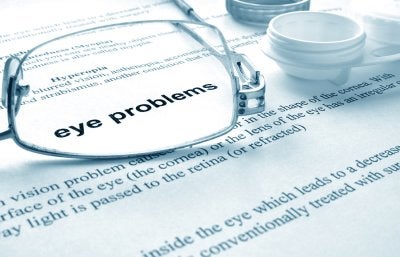
Behavior
If your child is nearsighted or farsighted, he or she may display some atypical behaviors. Your child may hold books or pictures unusually close to or far away from his or her head. You might notice that your child frequently rubs his or her eyes, especially while trying to concentrate on something. He or she may consistently sit too close to the TV. Some children might even close or cover one eye while reading or watching TV. This last symptom may indicate a binocular vision problem.
Academic Progress
Many children are diagnosed with nearsightedness after suffering a setback in academic performance. If your child has suddenly begun to receive poor grades or his or her teacher has noted that your child has not been paying attention in class, it could be time to schedule an eye exam. Kids who cannot see well have trouble reading instructions on the chalkboard. They might have trouble using computers or performing close work. In these cases, vision correction via eyeglasses may be all that is needed to get kids back on track in school.
Symptoms
If your child is old enough to articulate the problems he or she is experiencing, then you may hear him or her complain of dizziness, headaches, or nausea after reading or using a computer. These symptoms may indicate refractive errors. If your child experiences other types of vision problems, he or she may complain of having itchy, painful, or burning eyes. Fortunately, an ophthalmologist can help your child see clearly again.
-
What Is Strabismus?
More commonly referred to as “crossed eyes,” strabismus is a disorder in which the eyes are out of alignment with each other. In other words, they do not focus on the same object at the same time. Strabismus is often present at birth, although it can develop in adults. If you or your child has the appearance of being cross-eyed, it’s important to visit an ophthalmologist at an ophthalmology practice in Chicago. An ophthalmologist can help you understand the condition, including its possible causes such as cerebral palsy, traumatic brain injury (TBI), stroke, or eye injuries.
For a child with strabismus, vision correction often involves placing an eyepatch over the stronger eye to force the weaker eye to become stronger. Adults with mild strabismus may benefit from eye muscle exercises and eyeglasses. However, for a child or for an adult, eye muscle surgery may be needed in severe cases and for symptoms that are not sufficiently addressed through conservative treatments.
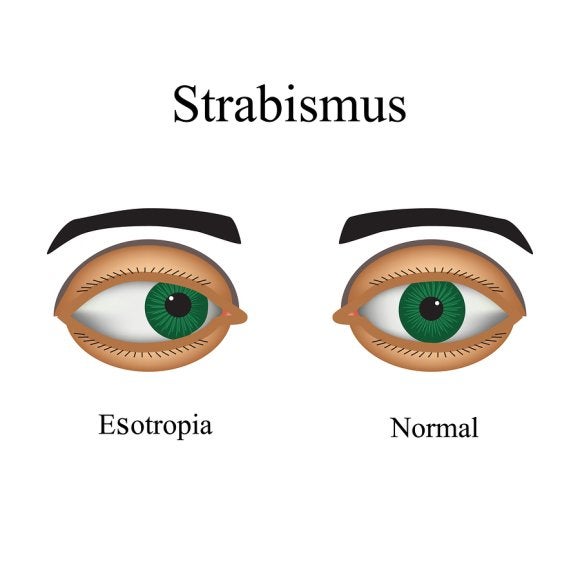
-
Practicing Good Eye Health
Good eye health is essential for your quality of life. Unfortunately, many people take their vision for granted until they experience problems. One of the best ways to promote good eye health is to make an appointment with an eye doctor each year for an exam. When you visit the ophthalmology practice in Chicago, the ophthalmologist will do much more than update your vision correction prescription as needed.
As you’ll learn when you watch this video, your ophthalmologist will also check for the early signs of eye health problems such as macular degeneration, diabetic retinopathy, and glaucoma. These are the three leading causes of vision loss in the U.S. The eye doctor in this video explains how these problems develop. If you’re concerned about your risk of eye diseases, talk to your ophthalmologist about ways of managing your risk.
